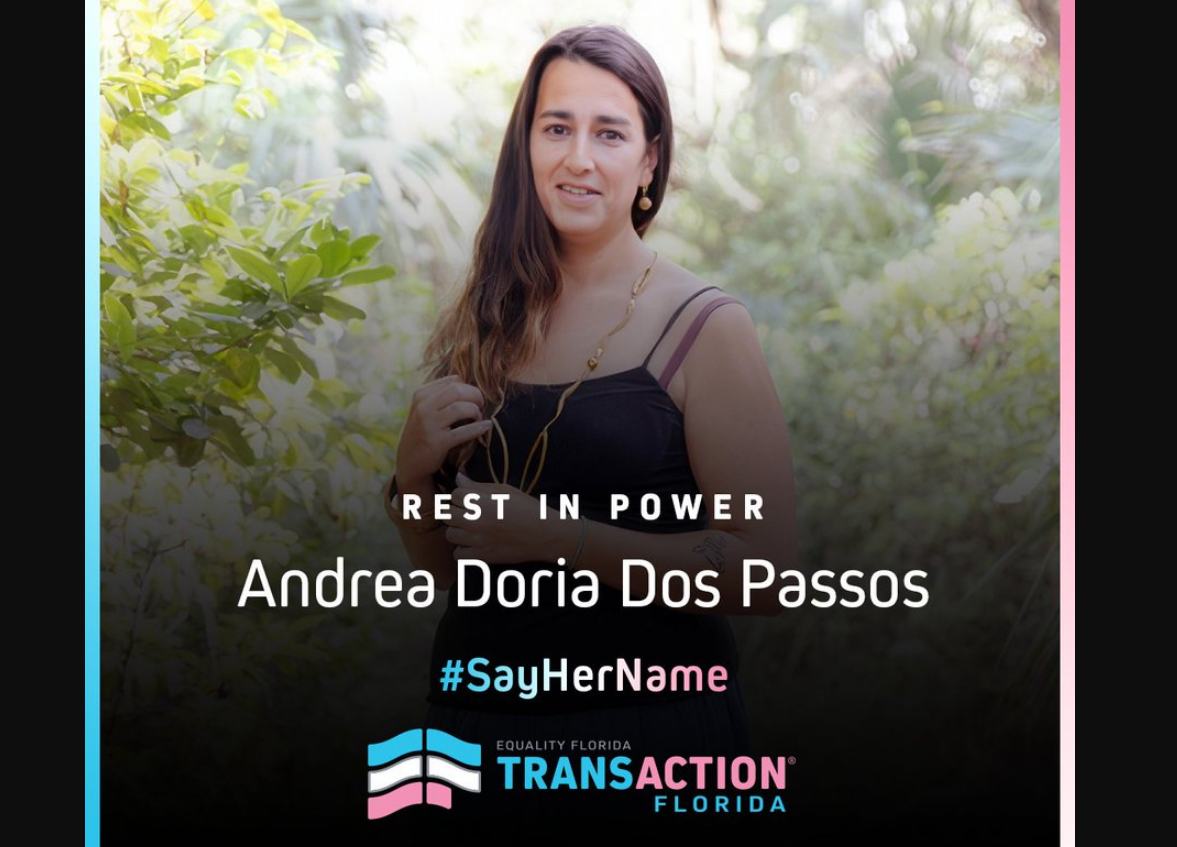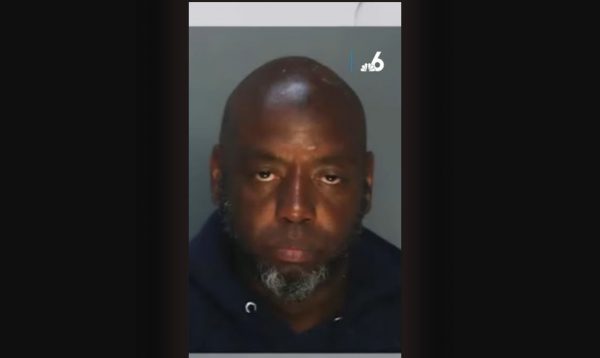National
Key senator says hold off on ‘Don’t Ask’ repeal
Ben Nelson wants to wait, follow guidance from Gates


Sen. Ben Nelson, right, talks with U.S. Army General David Petraeus. Nelson this week said he would vote against a legislative effort to overturn "Don't Ask, Don't Tell." (Photo courtesy of Nelson’s office)
Sen. Ben Nelson, right, talks with U.S. Army General David Petraeus. Nelson this week said he would vote against a legislative effort to overturn “Don’t Ask, Don’t Tell.” (Photo courtesy of Nelson’s office)
A key U.S. senator has told the Blade that he opposes repealing “Don’t Ask, Don’t Tell” at this time.
In a brief exchange on Capitol Hill, Sen. Ben Nelson (D-Neb.) said Tuesday he would vote against an effort next week to overturn the law. He said he wants to adhere to guidance from Defense Secretary Robert Gates and Chairman of the Joint Chiefs of Staff Adm. Michael Mullen on holding off on repeal.
Asked whether he would vote in favor of a repeal measure, Nelson replied, “No, I want to follow with the advice and the suggestions of Secretary of Defense Gates to have the study that is underway right now before we make that final decision — because it’s not a question of ‘whether,’ it’s a question of ‘how.’”
A vote on repealing “Don’t Ask, Don’t Tell” as part of major defense budget legislation could take place next week during the Senate Armed Services Committee markup of the fiscal year 2011 defense authorization bill. Markup proceedings are scheduled to begin May 26 and are closed to the public.
It remains unclear whether there are enough votes on the committee to make repeal part of the legislation. Mustering enough votes to repeal the statute could be a challenge for opponents of “Don’t Ask, Don’t Tell,” following Nelson’s comments.
Repeal efforts were complicated last month after Gates released a letter to Congress saying he would “strongly oppose” repeal before the Pentagon completes at year’s end its study on the issue. Since then, supporters of repeal — including Sen. Carl Levin (D-Mich.) — have advocated for a compromise in which Congress would vote now to repeal the law but delay implementation of repeal until 2011.
Asked whether he would be open to such a measure, Nelson appeared to be unaware that such an approach to “Don’t Ask, Don’t Tell” has been under consideration, but was reluctant to support the idea.
“I don’t know,” Nelson said. “I haven’t seen that legislation. I know there’s probably some support for that, but I think it’s been made pretty clear by Secretary Gates that we shouldn’t take any action until the study is completed, and that’s my position. That’s where I’m going to stay.”
Nelson’s statements came as a disappointment to people who had identified him as an uncommitted vote on “Don’t Ask, Don’t Tell” that could be moved in favor of repeal this year.
He was among six senators that LGBT organizations, including the Human Rights Campaign, had lobbied through a grassroots campaign to vote in favor of repeal. The other five are Sens. Evan Bayh (D-Ind.), Robert Byrd (D-W.Va.), Scott Brown (R-Mass.), Bill Nelson (D-Fla.), and Jim Webb (D-Va.).
Alex Nicholson, executive director of Servicemembers United, said Ben Nelson is only one of the six key senators and estimated that only two or three votes from those six are needed to advance repeal.
“If Sen. Nelson is entrenching himself that hard on that side of the vote, then I think he risks putting himself down on the wrong side of history,” Nicholson said. “That’s something he’s going to have to live with for the rest of his career, and that’s going to be part of his legacy.”
Nicholson said Nelson’s apparent unfamiliarity with delayed implementation legislation could mean that high-level discussions with him on moving forward with that plan hadn’t yet occurred.
‘Don’t Ask’ opponents push on
Even with Nelson representing a “no” vote on repeal during the committee vote, supporters of ending “Don’t Ask, Don’t Tell” are moving forward with plans for a vote next week during the committee markup.
Sen. Joseph Lieberman (I-Conn.), the sponsor of standalone repeal legislation in the Senate, told the Blade that supporters of repeal are “working hard” to find a way forward for passage in the committee.
“Obviously, we were set back somewhat from the letter by Secretary Gates, but we’re talking to every member of the committee,” he said. “We have some, I think, creative ideas about how to deal with … concerns that Secretary Gates expressed.”
Lieberman said he’s uncertain if the votes are there for passage, but noted that “it’s important to get this done this year.”
Sen. Mark Udall (D-Colo.), another member of the Senate Armed Services Committee and a strong proponent of repeal, said he doesn’t think anyone knows whether the votes are there in the committee for repeal, but he’s “feeling guardedly optimistic” about the prospects.
“It’s crucial that we take this opportunity to lift it,” he said. “There’s different ideas about how to best work with the Pentagon on this approach, but I still think you could study and repeal.”
Nicholson said he thinks supporters “have a really good shot” at getting the two or three votes necessary to win repeal during Senate markup next week.
“It’s really going to come down to some of the one-on-one conversations that Levin and Lieberman are having this week with their colleagues on the committee,” he said.
In the wake of the Gates letter, many repeal supporters see pushing forward with delayed implementation legislation as the optimal path for a successful vote on ending “Don’t Ask, Don’t Tell” this year.
Lieberman said supporters are looking at alternatives, including a bill “to enact repeal, but have it not be this year, to have it not be effective until either sometime next year” or until the Pentagon working group issues a certification of its study.
“I think Secretary Gates was really talking about he doesn’t want us to do this until the rank-and-file military has had a chance to be heard,” Lieberman said. “So we’re trying to find a way to take legislative action this year, but still respect the opinions of the military and maybe delay the implementation until sometime next year.”
Lieberman said a number of different ideas are being discussed among committee members, but delayed implementation legislation “seems to be the one that commands the most support.”
Also noting that delayed implementation could have traction is Udall, who said such a bill is “one of the ideas” being discussed.
“That still remains my preferred course,” he said. “In other words, you would make it very clear the law is repealed, and then you put in place the timeframe by which you implement the changes that are necessary.”
Despite this push and work toward a compromise, the six targeted members of the Senate Armed Services Committee have been reluctant to endorse repeal publicly, although none of these six have been as explicit as Ben Nelson in their opposition.
Sen. Jim Webb (D-Va.) has maintained on several occasions the importance of the Pentagon study as a means to inform Congress on how to approach repeal of “Don’t Ask, Don’t Tell.”
Asked this week whether he’s made a decision on how he’ll vote should an amendment come before him, Webb replied, “I think we need to respect the process that Secretary Gates and Adm. Mullen put in place.”
Webb had a similar response when asked whether his position would be any different for delayed implementation legislation.
“I think we should honor the process that they’ve put in place,” Webb said. “I think people should understand that it’s a pretty significant historical event in terms of what Adm. Mullen said during that hearing in February.”
The offices of Bill Nelson and Bayh sent statements to the Blade that were similarly non-committal in how the senators would vote. The statements were virtually identical to those the offices sent to the Blade last month.
Dan McLaughlin, spokesperson for Bill Nelson, said the senator is “inclined” to support repeal, but “wants to see Secretary Gates’ study on how it would impact the military.”
In a statement, Bayh said his “personal belief” is that people serving their country in the armed forces “ought to be able to serve it openly,” but noted that he wants military leaders to be able to speak up on this issue.
“President Obama is absolutely right to solicit the input and support of his top military commanders about the effects of repealing the ‘Don’t Ask, Don’t Tell’ policy,” he said. “I will make a final decision after receiving the input of our top commanders.”
Some of the targeted senators were staying mum this week on how they’d vote should an amendment come before them. Byrd’s office declined to comment in response to a Blade inquiry on the issue. Brown’s office didn’t respond to multiple requests for comment.
Obama MIA in repeal effort?
As supporters of repeal work to gather support, one notable absence among those lending a hand is President Barack Obama.
Repeal of “Don’t Ask, Don’t Tell” was one of Obama’s campaign promises, but a number of senators say the White House hasn’t contacted them to move them one way or the other on the issue.
In public statements on the “Don’t Ask, Don’t Tell” issue, the White House has consistently refrained from saying Obama supports attaching repeal as part of the defense authorization bill.
Asked whether the White House is being helpful in building support, Lieberman suggested the president could be playing a greater role.
“I mean, they’re obviously for this, so we need their help,” he said.
Nicholson said he didn’t know if the White House had been helpful in moving senators in favor of repeal, but noted that he hasn’t “seen any evidence of that, certainly.”
Each of the targeted senators to whom the Blade spoke said they had not heard from the White House or the Pentagon on the issue.
Asked whether the White House or the Pentagon had contacted him to influence his vote on “Don’t Ask, Don’t Tell,” Ben Nelson replied, “No, no.”
Jessica Smith, a Webb spokesperson, echoed those remarks in response to a Blade inquiry.
“As for the White House or the Pentagon contacting our office?” she said. “I don’t believe so.”
Similarly, McLaughlin said he doesn’t believe the White House or the Pentagon has contacted Bill Nelson to inform his vote on the issue.
“To my knowledge, neither the White House nor the Pentagon has recently contacted Bill about this issue,” McLaughlin said.
A White House spokesperson didn’t immediately respond to the Blade’s request for comment on why Obama hasn’t reached out to the senators.
National
GLSEN hosts Respect Awards with Billy Porter, Peppermint
Annual event aims to ‘inspire a lot of people to get active’

GLSEN will host its annual Respect Awards April 29 in New York, with guests including Miss Peppermint and Billy Porter.
Respect Awards director Michael Chavez said that the event will be moving.
“It will inspire a lot of people to get active and take action in their own communities and see how much more work there is to do, especially with all of the harmful things happening,” he said.
At the event, they will recognize the Student Advocate of the Year, Sophia T. Annually, GLSEN recognizes a student from around the country who is impacting their community.
“Sophia is doing incredible work advocating for inclusive sex education that is LGBTQ+ affirming, working with Johns Hopkins University to implement curriculum.” Chavez said.
Chavez calls the students that attend the Respect Awards the “biggest celebrities” of the evening.
“It is really important for the adults, both the allies and the queer folks, to hear directly from these queer youth about what it’s like to be in school today as a queer person,” he said.
GLSEN is a queer youth advocacy organization that has been working for more than 30 years to protect LGBTQ youth.
“GLSEN is all hands on deck right now, because our kids are under direct attack and have been for years now,” said actor Wilson Cruz.
Cruz is the chair of GLSEN’s National Board, which works to fundraise and strategize for the organization.
“I think we are fundamental to the education of LGBTQ students in school,” he said. “We advocate for more comprehensive support at the local, national, and federal levels so our students are supported.”
Chavez is one of the students that was impacted by this work. He led his school’s GSA organization and worked with GLSEN throughout his youth.
Cruz said Chavez is doing what he hopes today’s GLSEN students do in the future, which is pay the work forward.
“There’s nothing more powerful than people who have experienced the work that GLSEN does and then coming back and allowing us to expand on that work with each generation that comes forward,” he said.
Florida
Homeless transgender woman murdered in Miami Beach
Andrea Doria Dos Passos attacked while she slept

Gregory Fitzgerald Gibert, 53, who was out on probation, is charged with the second-degree murder of 37-year-old Andrea Doria Dos Passos, a transgender Latina woman who was found deceased in front of the Miami Ballet company facility by a security guard this past week.
According to a Miami Beach Police spokesperson the security guard thought Dos Passos was sleeping in the entranceway around 6:45 a.m. on April 23 and when he went to wake her he discovered the blood and her injuries and alerted 911.
She was deceased from massive trauma to her face and head. According to Miami Beach police when video surveillance footage was reviewed, it showed Dos Passos lying down in the entranceway apparently asleep. WFOR reported: In the early morning hours, a man arrived, looked around, and spotted her. Police said the man was dressed in a black shirt, red shorts, and red shoes.
At one point, he walked away, picked up a metal pipe from the ground, and then returned. After looking around, he sat on a bench near Dos Passos. After a while, he got up and repeatedly hit her in the head and face while she was sleeping, according to police.
“The male is then seen standing over her, striking her, and then manipulating her body. The male then walks away and places the pipe inside a nearby trash can (the pipe was found and recovered in the same trash can),” according to the arrest report.
Police noted that in addition to trauma on her face and head, two wooden sticks were lodged in her nostrils and there was a puncture wound in her chest.
Victor Van Gilst, Dos Passos’s stepfather confirmed she was trans and experiencing homelessness.
“She had no chance to defend herself whatsoever. I don’t know if this was a hate crime since she was transgender or if she had some sort of interaction with this person because he might have been homeless as well. The detective could not say if she was attacked because she was transgender,” said Van Gilst.
“She has been struggling with mental health issues for a long time, going back to when she was in her early 20s. We did everything we could to help her. My wife is devastated. For her, this is like a nightmare that turned into reality. Andrea moved around a lot and even lived in California for a while. She was sadly homeless. I feel the system let her down. She was a good person,” he added.

The Miami Police Department arrested Gibert, collected his clothing, noting the red shorts were the same type in the video and had blood on them. Blood was also found on his shoes, according to police. He was taken into custody and charged.
“The suspect has an extensive criminal record and reportedly was recently released from custody on probation for prior criminal charges. Police apprehended the suspect in the city of Miami and the investigation is currently ongoing. This case is further evidence that individuals need to be held accountable for prior violent crimes for the protection of the public. We offer our sincere condolences to the family and friends of the victim,” Miami Beach Mayor Steve Meiner said in a statement.
Joe Saunders, senior political director with LGBTQ rights group Equality Florida, told the Miami Herald that “whenever a transgender person is murdered, especially when it is with such brutality, the question should be asked about whether or not this was a hate-motivated crime.”
Federal Government
HHS reverses Trump-era anti-LGBTQ rule
Section 1557 of the Affordable Care Act now protects LGBTQ people

The U.S. Department of Health and Human Services Office for Civil Rights has issued a final rule on Friday under Section 1557 of the Affordable Care Act advancing protections against discrimination in health care prohibiting discrimination on the basis of race, color, national origin, age, disability, or sex (including pregnancy, sexual orientation, gender identity, and sex characteristics), in covered health programs or activities.
The updated rule does not force medical professionals to provide certain types of health care, but rather ensures nondiscrimination protections so that providers cannot turn away patients based on individual characteristics such as being lesbian, gay, bisexual, transgender, queer, intersex, or pregnant.
“This rule ensures that people nationwide can access health care free from discrimination,” said HHS Secretary Xavier Becerra. “Standing with communities in need is critical, particularly given increased attacks on women, trans youth, and health care providers. Health care should be a right not dependent on looks, location, love, language, or the type of care someone needs.”
The new rule restores and clarifies important regulatory protections for LGBTQ people and other vulnerable populations under Section 1557, also known as the health care nondiscrimination law, that were previously rescinded by the Trump administration.
“Healthcare is a fundamental human right. The rule released today restores critical regulatory nondiscrimination protections for those who need them most and ensures a legally proper reading of the Affordable Care Act’s healthcare nondiscrimination law,” said Omar Gonzalez-Pagan, counsel and health care strategist for Lambda Legal.
“The Biden administration today reversed the harmful, discriminatory, and unlawful effort by the previous administration to eliminate critical regulatory protections for LGBTQ+ people and other vulnerable populations, such as people with limited English proficiency, by carving them out from the rule and limiting the scope of entities to which the rule applied,” Gonzalez-Pagan added. “The rule released today has reinstated many of these important protections, as well as clarifying the broad, intended scope of the rule to cover all health programs and activities and health insurers receiving federal funds. While we evaluate the new rule in detail, it is important to highlight that this rule will help members of the LGBTQ+ community — especially transgender people, non-English speakers, immigrants, people of color, and people living with disabilities — to access the care they need and deserve, saving lives and making sure healthcare professionals serve patients with essential care no matter who they are.”
In addition to rescinding critical regulatory protections for LGBTQ people, the Trump administration’s rule also limited the remedies available to people who face health disparities, limited access to health care for people with Limited English Proficiency, and dramatically reduced the number of healthcare entities and health plans subject to the rule.
Lambda Legal, along with a broad coalition of LGBTQ advocacy groups, filed a lawsuit challenging the Trump administration rule, Whitman-Walker Clinic v. HHS, and secured a preliminary injunction preventing key aspects of the Trump rule from taking effect.
These included the elimination of regulatory protections for LGBTQ people and the unlawful expansion of religious exemptions, which the new rule corrects. The preliminary injunction in Whitman-Walker Clinic v. HHS remains in place. Any next steps in the case will be determined at a later time, after a fulsome review of the new rule.
GLAAD President Sarah Kate Ellis released the following statement in response to the news:
“The Biden administration’s updates to rules regarding Section 1557 of the ACA will ensure that no one who is LGBTQI or pregnant can face discrimination in accessing essential health care. This reversal of Trump-era discriminatory rules that sought to single out Americans based on who they are and make it difficult or impossible for them to access necessary medical care will have a direct, positive impact on the day to day lives of millions of people. Today’s move marks the 334th action from the Biden-Harris White House in support of LGBTQ people. Health care is a human right that should be accessible to all Americans equally without unfair and discriminatory restrictions. LGBTQ Americans are grateful for this step forward to combat discrimination in health care so no one is barred from lifesaving treatment.”
-

 District of Columbia4 days ago
District of Columbia4 days agoCatching up with the asexuals and aromantics of D.C.
-

 South America4 days ago
South America4 days agoArgentina government dismisses transgender public sector employees
-

 Mexico3 days ago
Mexico3 days agoMexican Senate approves bill to ban conversion therapy
-

 Advice3 days ago
Advice3 days agoShould I divorce my husband for the hot new guy in our building?












